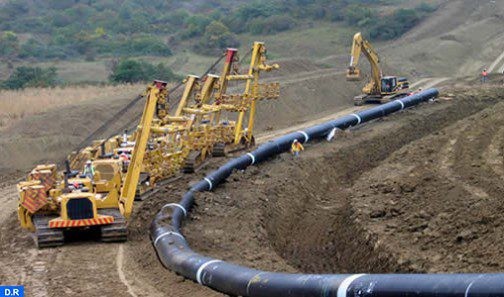Morocco is ramping up efforts to advance one of Africa’s most ambitious energy infrastructure projects: a transcontinental gas pipeline linking Nigeria to Morocco. As the initiative moves into a pivotal stage, Rabat is actively courting stronger financial backing from the United States.
In recent weeks, a representative from Morocco’s National Office of Hydrocarbons and Mines traveled to Texas to engage with American investors, particularly those with ties to the Trump-aligned political and business spheres. The mission focused on promoting the pipeline’s strategic value in a global context where fossil fuels continue to carry significant economic and geopolitical weight.
During the IMF and World Bank spring meetings, Nigeria’s Finance Minister revealed that the United States had expressed growing interest in the pipeline. Discussions reportedly took place with U.S. State Department officials, in the presence of the Nigerian Central Bank governor, signaling Washington’s willingness to explore potential involvement.
This shift in U.S. attention is no coincidence. It reflects a broader strategy to counterbalance China’s growing footprint across Africa. Beijing is already heavily invested in numerous infrastructure ventures on the continent, including this very pipeline. Washington’s interest, therefore, is as much about energy security and market access as it is about geopolitical influence.
At the recent Powering Africa Summit in Washington, Amina Benkhadra, Director General of Morocco’s hydrocarbons office, outlined the project’s progress. According to her, the initiative has reached a critical juncture, with a final investment decision expected in the near future. If timelines hold, construction could begin as early as 2029.
Spanning over 6,800 kilometers, the pipeline is designed to carry Nigerian natural gas through more than ten West African countries before reaching Morocco and, ultimately, Europe. Its projected annual capacity is around 30 billion cubic meters—a significant volume that would strengthen Africa’s role in the global energy market while providing Europe with a new, strategically important supply route.
So far, no formal financial commitments have been made by the U.S., but conversations are ongoing with multiple American institutions. For Morocco, securing U.S. involvement would not only help mobilize capital but also send a strong signal of international support for a project that could redefine the energy map of the continent.
